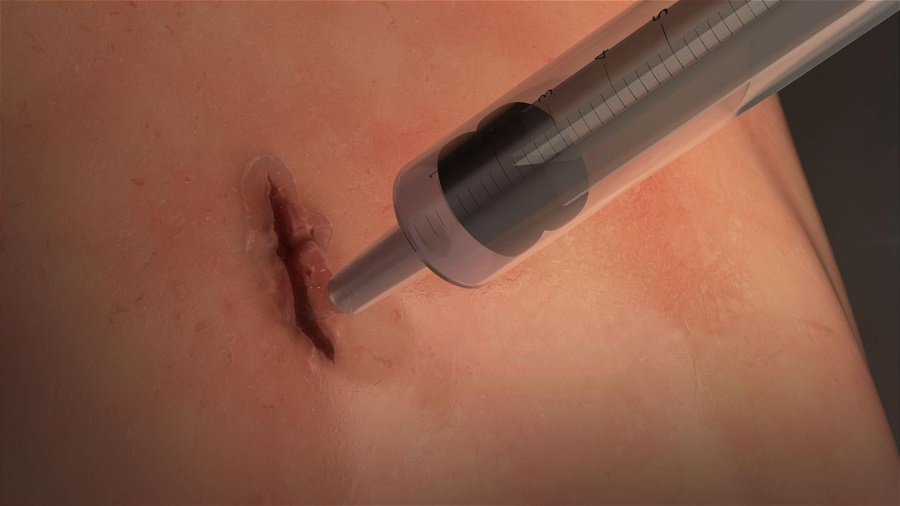A team of scientists just developed a new surgical “super glue” that seals cuts and wounds in a matter of seconds. The “squirtable” elastic glue seals wound in about 60 seconds and could revolutionize how surgeries are performed, as patients wouldn’t need any staples or sutures.
The findings were published in a study Wednesday in the journal Science Translational Medicine. The glue was developed by biomedical engineers at the University of Sydney, Australia, along with several American scientists.
The researchers dubbed the new surgical glue MeTro. According to the researchers, MeTro’s high elasticity makes it ideal for sealing cuts in body tissues that expand and relax continually, such as hearts, lungs, and arteries.
Surgical ‘super glue’ can seal body tissue in just 60 seconds
The researchers said another advantage of MeTro is that wounds located in hearts, arteries, and lungs, could be sealed without having the need to re-open them, which usually poses a risk to the patient.
“The beauty of the MeTro formulation is that, as soon as it comes in contact with tissue surfaces, it solidifies into a gel-like phase without running away,” said Nasim Annabi, lead author of the study and assistant professor at the Department of Chemical Engineering at Northeastern University in Boston, according to EurekAlert.

Annabi explained that, afterward, they stabilize the MeTro by curing it on site with a short light-mediated crosslinking treatment, which allows the surgical glue to be “very accurately placed and to tightly bond and interlock with structures” on the body tissue.
The surgical glue can also be used on internal wounds that are often hard-to-reach areas, and which usually require sutures or staples. Those internal wounds are hard to seal due to the surrounding body fluids, but the researchers say MeTro is able to seal them.
The elastic glue sets in just 60 seconds once it’s treated with the UV light, as Annabi explained. MeTro has a built-in degrading enzyme that can be modified to determine how long the sealant lasts on the tissue surface. That process can take either hours or months, and the sealant is modified to assess the adequate time for the wound to properly heal.
Researchers hope MeTro will soon be used to seal human wounds
The gel-like material in MeTro has already successfully sealed wounds in the arteries and lungs of rodents and the lungs of some pigs, without having the need to use staples or sutures, the researchers said.
“When you watch MeTro, you can see it act like a liquid, filling the gaps and conforming to the shape of the wound,” said Anthony Weiss, one of the paper’s authors from the University of Sydney. “It responds well biologically, and interfaces closely with human tissue to promote healing.”
Weiss noted that MeTro is easily stored and can be squirted directly onto a cut or wound. The gel-like sealant was created in a collaborative effort between Weiss, McCaughey Chair in Biochemistry Professor at the University of Sydney, and Ali Khademhosseini, director of Biomaterials Innovation Research Center at Harvard Medical School.
Khademhosseini said the findings were promising, as they could change drastically how cuts and wounds are sealed.
“MeTro seems to remain stable over the period that wounds need to heal in demanding mechanical conditions and later it degrades without any signs of toxicity; it checks off all the boxes of a highly versatile and efficient surgical sealant with potential also beyond pulmonary and vascular suture and staple-less applications,” he said, as cited by EurekAlert.
Weiss noted the next step involves testing MeTro on other clinical subjects. However, he noted they’re not ready to test the product on humans, yet. He added he hopes MeTro “will soon be used in the clinic, saving human lives.”
Source: EurekAlert
